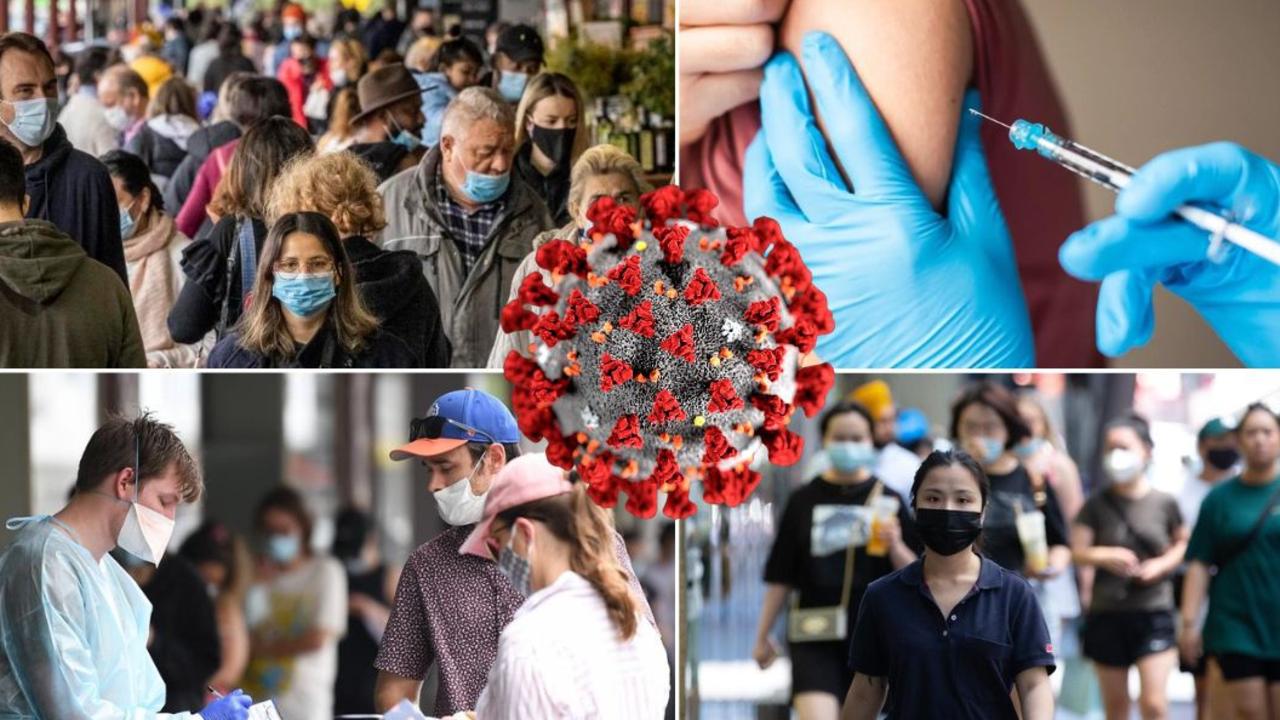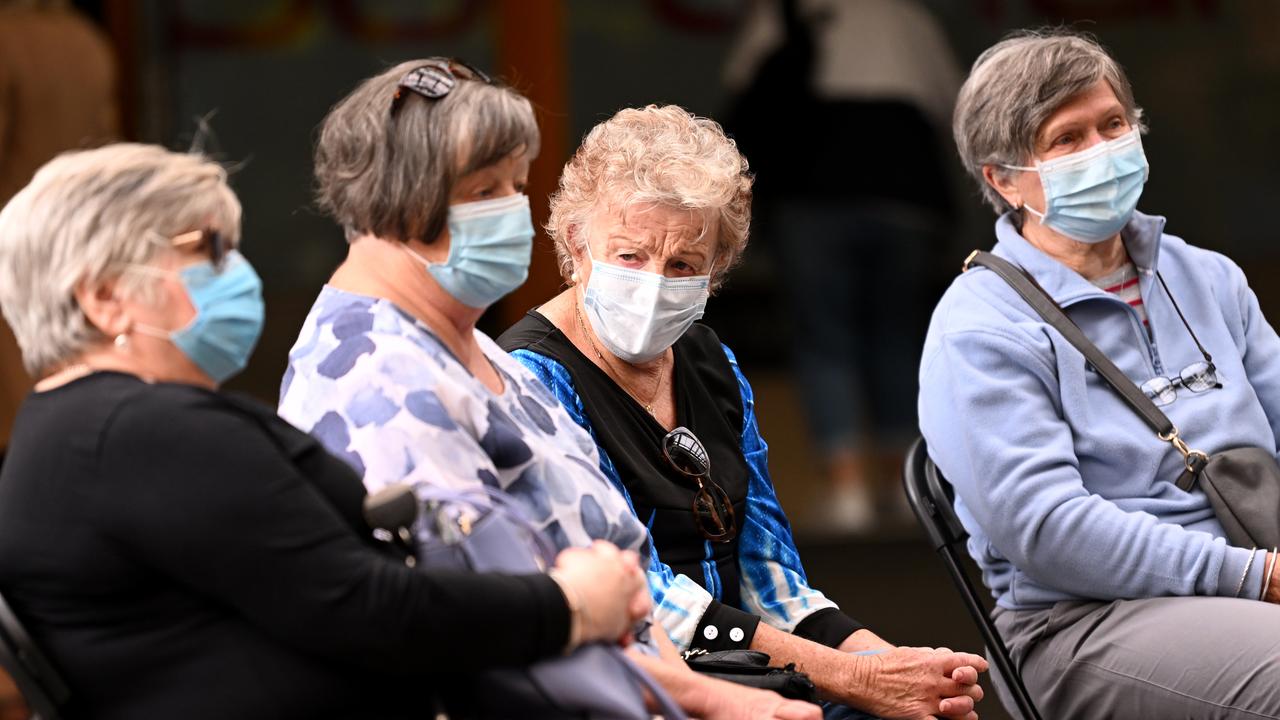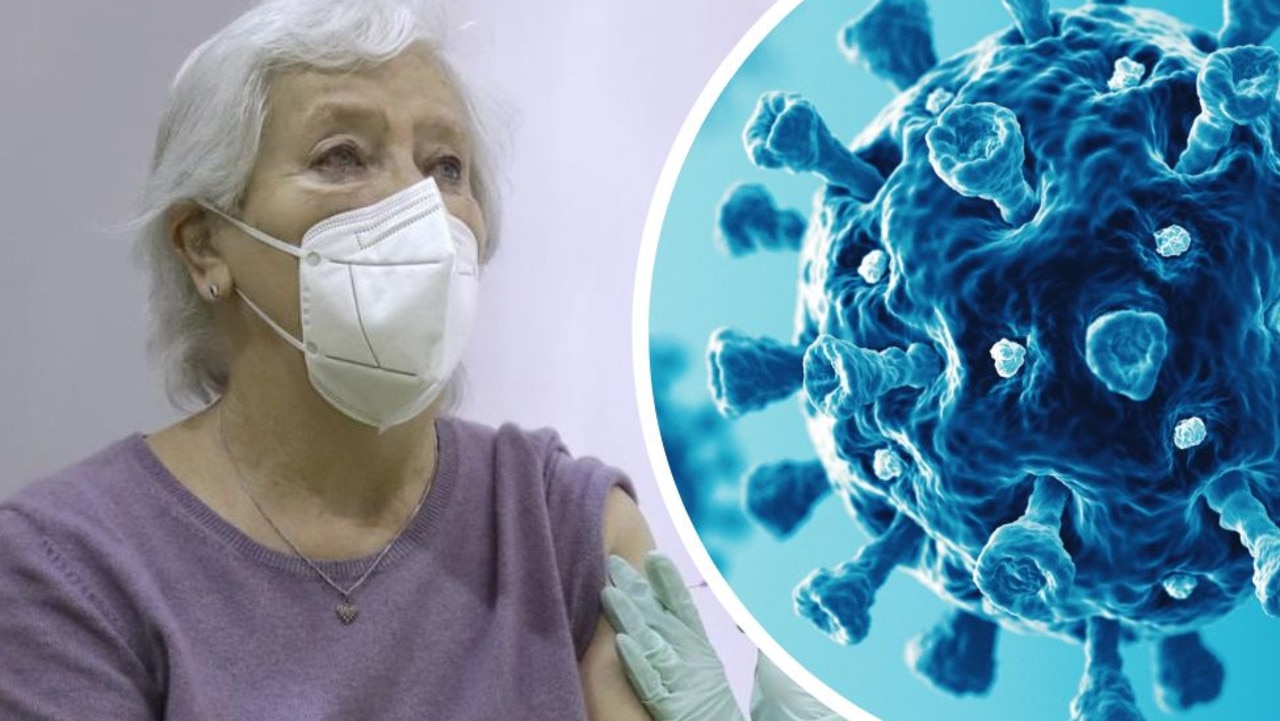Covid world: N Korea outbreak ‘getting worse’ says WHO
The World Health Organisation has outlined its concerns over North Korea’s worsening coronavirus outbreak as Shanghai gets closer to ending lockdown.
Coronavirus
Don't miss out on the headlines from Coronavirus. Followed categories will be added to My News.
The World Health Organisation has revealed that it had no access to data about North Korea’s Covid-19 outbreak, but assumed the crisis was deepening, contrary to Pyongyang’s reports of “progress”.
North Korea, which announced its first ever coronavirus cases on May 12, said last week its Covid outbreak had been brought under control, with state media reporting falling caseloads.
But WHO emergencies director Michael Ryan questioned that claim. “We assume that situation is getting worse not better,” he told reporters, acknowledging though that the secretive totalitarian state had provided only very limited information.

“Right now we are not in a position to make an adequate risk assessment of the situation on the ground,” he said, pointing out that “it is very, very difficult to provide a proper analysis to the world when we don’t have access to the necessary data.” Maria Van Kerkhove, WHO’s lead on Covid-19, meanwhile said the country had registered around 3.7 million suspected Covid cases, although the official accounts only mention cases of “fever”.
The state-run Korean Central News Agency (KCNA) reported last Friday that caseloads had fallen for a seventh straight day, with just over 100,000 new “fever” cases in 24 hours, down from a high of 390,000 daily cases earlier in May.
KCNA also reported one more death Friday -- taking the official toll to 69 -- and claimed the fatality rate remains at 0.002 per cent.
“There are many recoveries that have been reported, but there’s limited information that we have from the country currently,” Ms Van Kerkhove said.
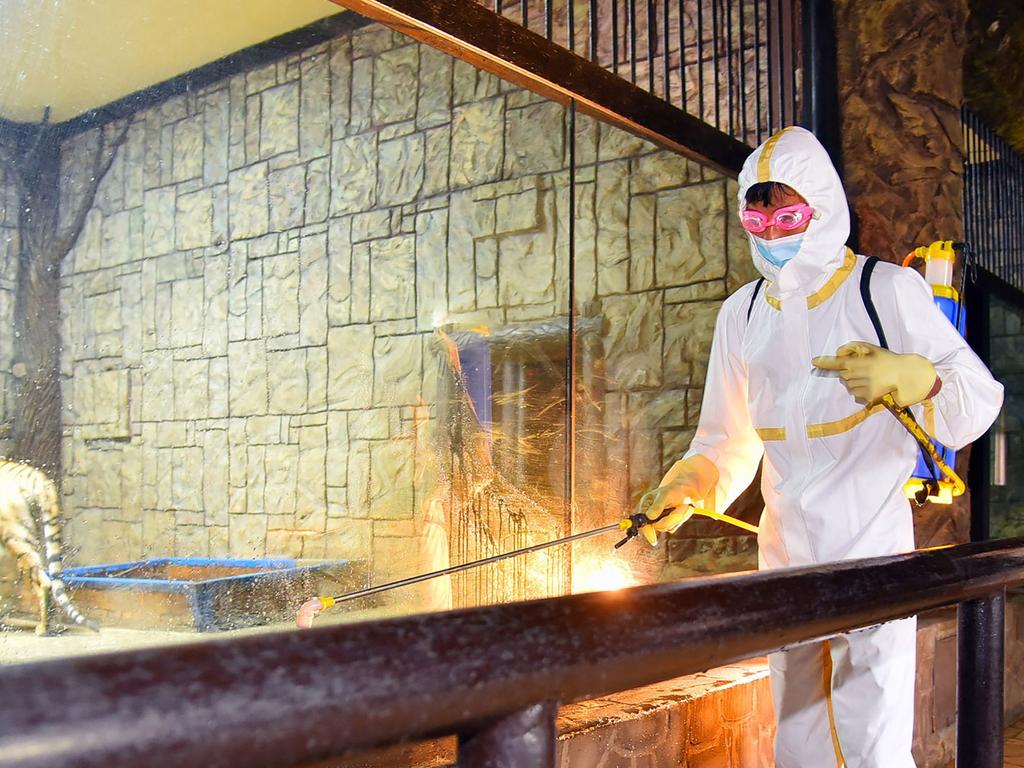
North Korea, which has one of the worst health systems in the world, has not vaccinated any of its roughly 25 million people, having rejected jabs offered by the WHO.
Ryan stressed the importance of reining in the outbreak in the impoverished country.
“We have offered assistance on multiple occasions. We have offered vaccines on three separate occasions. We continue to offer,” he said.
He said the UN health agency was working with China and South Korea in a bid to get aid in, hailing “a very positive attitude towards trying to deal with this collective problem.”
The WHO has repeatedly cautioned against allowing the virus that causes Covid to spread unchecked, among other things since it then is more likely to mutate and produce new, potentially more dangerous variants.
“We do not wish to see intense transmission of this disease in a mainly susceptible population, in a health system that has already weakened,” Ryan said.
“This is not this is not good for the people of (North Korea). This is not good for the region. This is not good for the world.”
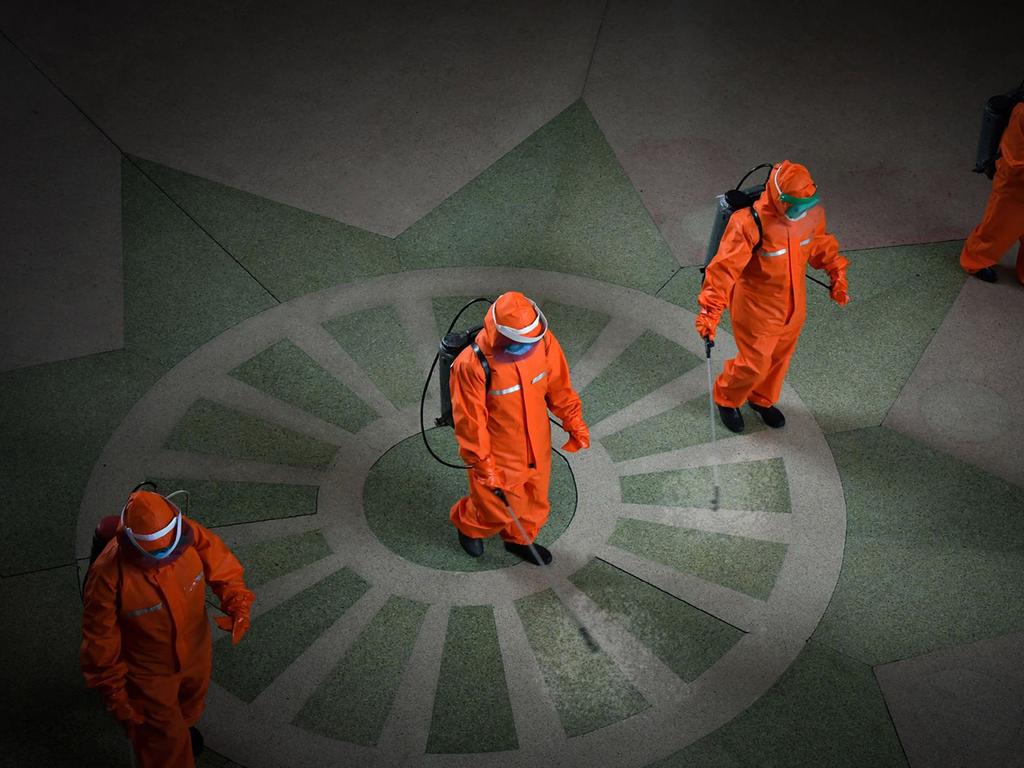
SHANGHAI MOVES TOWARDS ENDING LOCKDOWN
Meanwhile, Shanghai whirred back to life on Wednesday local time as a range of Covid restrictions were eased and thousands took to the streets after a two-month lockdown that confined residents to their homes and battered the Chinese economy.
The commercial hub of 25 million people was closed in sections from late March, when the Omicron virus variant fuelled China’s worst outbreak in two years.
After gradually relaxing some rules over the past few weeks, authorities on Wednesday began allowing residents in areas deemed low-risk to move around the city freely.

“It feels like we’ve all been through a lot of trauma, a collective trauma,” Grace Guan told reporters.
The 35-year-old Shanghai resident said she went out at midnight when the restrictions eased and saw groups gathered in the street drinking beer, some sitting together on blankets laid out on the pavements.
“Now it feels like the Berlin Wall coming down.” On Wednesday morning, commuters trickled into subway stations and office buildings, scanning QR codes that certify they are virus-free.
Residents gathered to chat in parks, queue outside banks and walk by the riverside, with masked customers thronging one of the main shopping streets.
“Everything is getting better, bit by bit. Things are moving forward,” said one relieved office worker, surnamed Li.

The famous Bund waterfront was ticking back to life, with visitors snapping pictures of the famous skyline on their phones.
A day earlier, many of the bright yellow barriers that had hemmed in buildings and city blocks for weeks were taken down.
“It should have been like this to begin with,” one woman out for a riverside walk told AFP, in echoes of the frustration and anger that has simmered in the city over the strict controls.
Deputy Mayor Zong Ming told reporters that the easing would impact about 22 million people in the city.
Malls, convenience stores, pharmacies and beauty salons would be allowed to operate at 75 percent capacity, while parks and other scenic spots would gradually reopen, she added.
But cinemas and gyms remain closed, and schools -- shut since mid-March -- will slowly reopen on a voluntary basis.
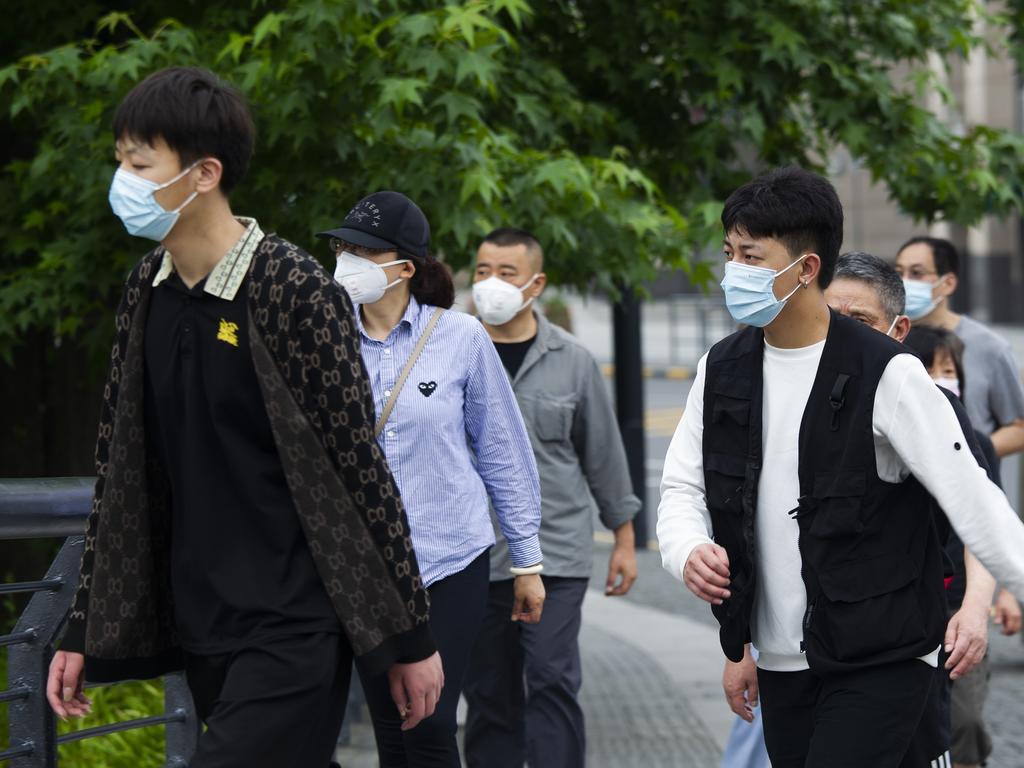
Buses, the subway and ferry services would also resume, transport officials said.
Taxi services and private cars will be allowed in low-risk areas, permitting people to visit friends and family outside their district.
“This is a moment that we have been looking forward to for a long time,” the Shanghai municipal government said in a statement on social media.
More than half a million still remained under restrictions as of Wednesday, according to the authorities.
JOHNSON ‘COULD FACE A VOTE’ OVER PARTYGATE
British Prime Minister Boris Johnson could face a vote among his own MPs to end his tenure in power as soon as next week, former Conservative leader William Hague said on Tuesday.
The prediction came after more Tory politicians, including two former cabinet ministers, expressed doubts about Johnson’s continued leadership in the wake of the “Partygate” scandal.
Dozens of his MPs have now publicly criticised their embattled leader over the numerous Covid lockdown-breaching parties held in Downing Street in 2020 and last year under his watch.
If 54 of them write a letter of no-confidence in Johnson to a powerful backbench committee of Tory MPs, that will trigger a vote of all 359 Conservatives politicians on whether he should continue as leader and thereby prime minister.
John Stevenson, the MP for Carlisle, is the latest Tory MP to reveal that he has written a letter of no confidence in Johnson.

Nearly 30 MPs are publicly known to have submitted such a letter but the process is shrouded in secrecy and the real tally is impossible to gauge.
Parliament is not sitting this week and with four days of celebrations for Queen Elizabeth II’s Platinum Jubilee beginning on Thursday, any announcement about a possible vote would not come until next week at the earliest.
BREAKING: Carlisle Conservative MP John Stevenson (@John4Carlisle) says he has submitted a letter of no confidence in Prime Minister @BorisJohnsonpic.twitter.com/AT5VMs0oYR
— Tom Sheldrick (@TomSheldrickITV) May 31, 2022
Hague said the prime minister is “in real trouble” and that Tory MPs are “moving towards having a ballot” on his leadership.
The latest heavyweight Tories to express doubts about Johnson include former lawyer general Jeremy Wright, who on Monday urged him to resign, and ex-cabinet minister Andrea Leadsom.
Hague said Leadsom’s intervention – a letter to her constituents on Tuesday in which she criticised “unacceptable failings of leadership” over “Partygate” – had lit a “slow fuse” on a no-confidence vote.
Allies of Boris Johnson had been hopeful he had escaped unscathed but Lord Hague said it was proving to be “one of those sort of slow-fuse explosions in politics”.
“The fuse is getting closer to the dynamite here and it’s speeding up,” Hague told Times Radio, adding it was “just another indication the Conservative Party is moving faster towards a vote”.
“A few more letters like that and it will come next week,” the former foreign secretary said.

The “Partygate” controversy, about Downing Street officials partying while the public was under Covid lockdown or under tight social restrictions, caused outrage.
Johnson himself became the first serving UK prime minister found to have broken the law while in office and was fined for attending a birthday party in 2020.
Although he has apologised, he has repeatedly refused to resign. Support for him among Conservatives is ebbing away following last week’s publication of an internal inquiry. The probe found he presided over a culture of parties that ran late into the night and even featured a drunken fight among staff.
Johnson secured a thumping 80-seat majority at the last general election in December 2019, on a promise to take the UK out of the European Union.
But despite that, an increasing number of Tory MPs have come forward to say they do not believe the party can win the next election, which is due by 2024, under his leadership.
Opinion polls have shown deep public disapproval over the scandal, with large majorities of people saying Johnson knowingly lied about “Partygate” and that he should resign.
The Tories have suffered several electoral setbacks during his tenure, including losing traditionally safe seats to the Liberal Democrats in by-elections and hundreds of councillors in local elections in early May.
The party is also predicted to lose two more by-elections in June, in southwest and northern England
THOUSANDS QUARANTINED AFTER ONE MAN BREAKS COVID RULES
The Chinese capital of Beijing has ordered hundreds of thousands of residents to stay home over the last five weeks to curb its largest coronavirus outbreak since the start of the pandemic.
Officials said on Sunday a man in his 40s surnamed Sun had failed to follow a requirement to isolate that he was given after he visited a shopping centre considered high-risk.
“During the home isolation period he … went out many times and walked in the neighbourhood,” said Beijing public security official Pan Xuhong.
Sun and his wife later tested positive, prompting authorities to lock down 5,000 of their neighbours at home and send 250 to a government quarantine centre.
It came as virus restrictions began to be eased in Beijing on Monday, with authorities reopening parks, museums and cinemas and declaring the outbreak under control.

China is wedded to a zero-Covid strategy of hard lockdowns, mass testing and long quarantine periods to wipe out clusters as they emerge.
There are tough penalties for breaking the rules and Sun is now under police investigation.
Beijing’s Omicron-fuelled cluster has seen more than 1,700 infections since late April – a tiny number by global standards but troubling for China’s rigid approach to the virus.
Case numbers have dropped sharply in the past week.
“There have been no new cases found in society (outside quarantine centres) for two days,” Xu Hejian, a spokesman for the Beijing government, said Sunday.
“The situation is stable and improving … but the risk of a rebound still exists.”

Most bus, subway and taxi services in three of the capital’s most populous districts were running again Monday and millions were told to return to work.
A handful of tai chi practitioners and locals were enjoying balmy weather in a reopened downtown park.
“I think people are waiting to see whether there will be new cases before coming out in large numbers,” said Zhi Ruo, a government employee who had brought his five-year-old child out to play.
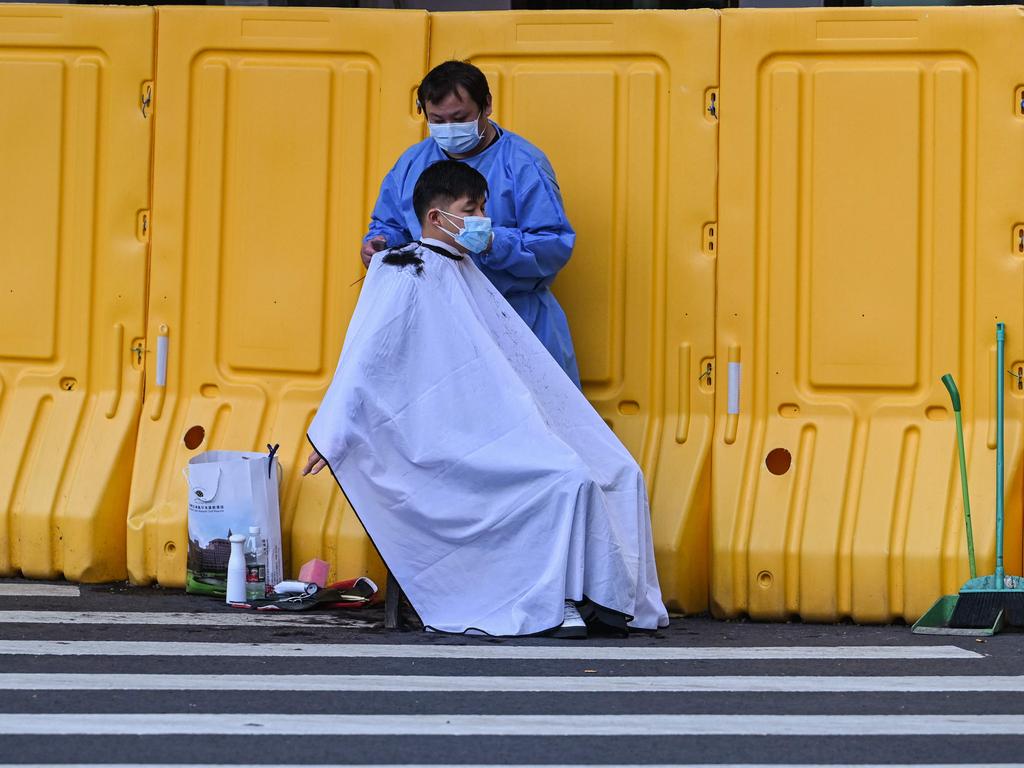

NEW DEADLY ‘NOSEBLEED VIRUS’ SHOCKS IRAQ
Spraying a cow with pesticides, health workers target bloodsucking ticks at the heart of Iraq’s worst detected outbreak of a fever that causes people to bleed to death.
The sight of the health workers, dressed in full protective kit, is one that has become common in the Iraqi countryside, as the Crimean-Congo haemorrhagic fever spreads, jumping from animals to humans.
This year Iraq has recorded 19 deaths among 111 CCHF cases in humans, according to the World Health Organisation.
The virus has no vaccine and onset can be swift, causing severe bleeding both internally and externally and especially from the nose. It causes death in as many as two-fifths of cases, according to medics.
“The number of cases recorded is unprecedented,” said Haidar Hantouche, a health official in Dhi Qar province.
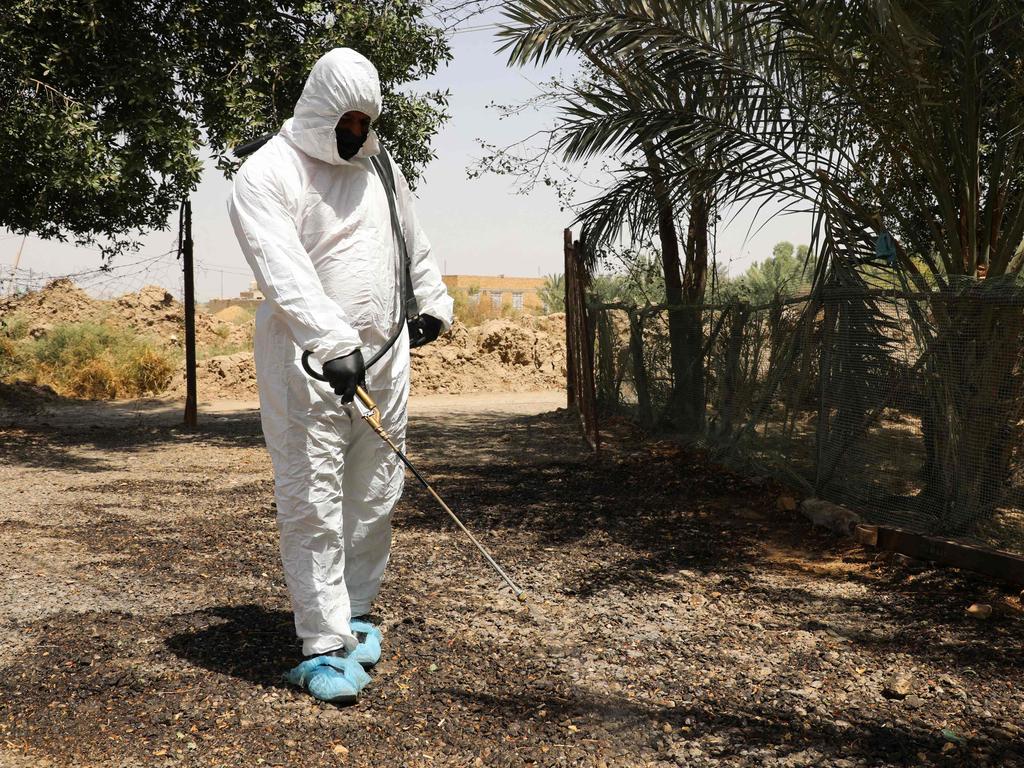
“The CCHF virus is transmitted to people either by tick bites or through contact with infected animal blood or tissues during and immediately after slaughter,” it adds.
The surge of cases this year has shocked officials, since numbers far exceed recorded cases in the 43 years since the virus was first documented in Iraq in 1979.
In his province, only 16 cases resulting in seven deaths had been recorded in 2021, Hantouche said. But this year Dhi Qar has recorded 43 cases, including eight deaths.
The numbers are still tiny compared with the Covid-19 pandemic — where Iraq has registered over 25,200 deaths and 2.3 million recorded cases, according to WHO figures — but health workers are worried.
Endemic in Africa, Asia, the Middle East and the Balkans, CCHF’s fatality rate is between 10 and 40 per cent, the WHO says.
The WHO’s representative in Iraq, Ahmed Zouiten, said there were several “hypotheses” for the country’s outbreak.
They included the spread of ticks in the absence of livestock spraying campaigns during Covid in 2020 and 2021.
And “very cautiously, we attribute part of this outbreak to global warming, which has lengthened the period of multiplication of ticks,” he said.
Authorities have put in place disinfection campaigns and are cracking down on abattoirs that do not follow hygiene protocols. Several provinces have also banned livestock movement across their borders.
More Coverage
Originally published as Covid world: N Korea outbreak ‘getting worse’ says WHO






